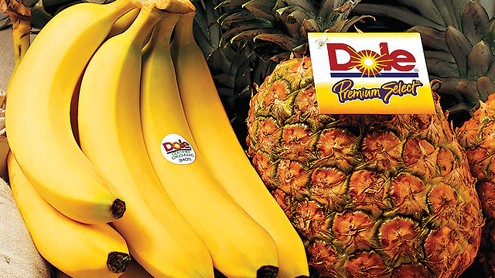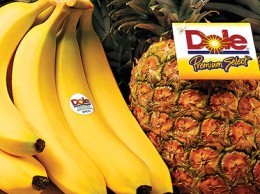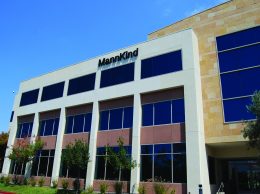Underperforming stock price prompts Dole to put asset sales on menu

A strategic review going on at Dole Food Co. could lead to a major overhaul and asset sales at the one of the biggest companies headquartered in the Westlake Village-Thousand Oaks corporate corridor.
Amid disappointing results, Dole shares have struggled to get to double-digits, a thorn in the side of investors who plunked down $12.50 per share when the company went public three years ago. Expecting a stable earner that would withstand the recession, they’ve instead found a company that can’t produce the kind of results that make it a favorite among food stocks.
“We believe that Dole’s share price does not reflect the inherent value of our packaged foods business,” CEO David DeLorenzo said on a May 3 earnings call. “In order to unlock this value, we have initiated a review of strategic alternatives, seeking to enhance shareholder value.”
Dole is considering separating or spinning off one or more of its businesses, among other options, DeLorenzo said. The company will be evaluating options for the packaged foods business in particular, he said.
Chairman David Murdock, one of the wealthiest businessmen in the region, took Dole private in 2003 after rescuing the food producer from bankruptcy. He took Dole public again in 2009 at $12.50 a share and because he retains a 58 percent stake in the company, he has suffered along with those who bought at the IPO.
Some analysts believe that uncoupling Dole’s fresh fruit, vegetable and packaged food businesses could produce an enterprise valued at $15 per share. Until the strategic review was announced, Dole traded at a lower value than virtually all of the listed shares in the U.S. food industry, according to an analysis by Bloomberg News.
In a detailed analysis published on May 9, rating agency Standard & Poor’s said it was affirming its single-B rating on Dole but it warned that a restructuring of the company could weaken its credit rating. “If, for example, the transactions result in substantially reduced product diversity, profitability, and/or weaker credit measures, we could lower the rating.
Alternatively, if, for example, the company uses divestiture proceeds to significantly reduce debt, we could raise the ratings,” S&P said in a statement. Dole had a hefty $1.7 billion of total debt outstanding as of March 24. In its report, S&P described Dole as a company that is “highly leveraged” and whose risk profile is “weak.” The company has experienced volatility in pricing of the fresh produce industry and political risks as well as exposure to currency swings.
About 60 percent of Dole’s sales are outside the U.S. and it is a leader in bananas and fresh pineapples.
One way Dole can reduce debt is to sell some of its land in Hawaii, which may be worth as much as $400 million, Carla Casella, a credit analyst for JPMorgan Chase & Co., wrote in a May 4 note. In a breakup, Dole could be valued at as much as $19.70 a share, including its property, she wrote.
For the first quarter of fiscal year 2012, revenue fell about 3.6 percent and operating profits fell sharply. S&P estimates the company’s operating cash flow evaporated due to lower earnings and increases in its working capital needs.
Even without the restructuring, S&P was expecting sales of noncore assets as Dole strove to get a small amount of revenue growth, pay for capital expenditures and reach cash flow targets.
With about $106 million in cash on hand and more than $170 million in unused capacity on its credit lines “We believe Dole will maintain adequate cash balances and availability on its credit facility to fund seasonal working capital needs and its debt service requirements,” S&P said, adding that in order to dramatically improve its credit rating, Dole would have to sharply reduce its level of long-term debt.
— Bloomberg News contributed to this report.










